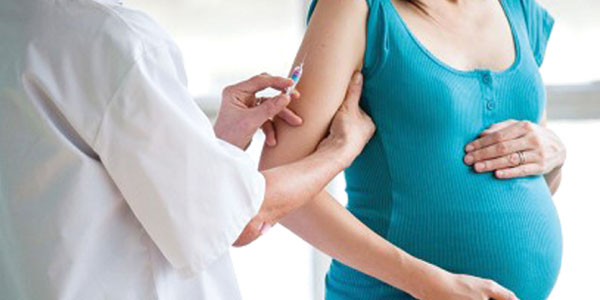
Commentary by Chara
A woman should take care of herself during pregnancy.
One way a woman should take care of herself during pregnancy is to get vaccinated.
Vaccines are important because they provide protection against various diseases, which can harm the mother and/or the baby.
According to the U.S. Centers for Disease Control and Prevention (CDC), there are guidelines women should follow before, during and after pregnancy to avoid illnesses. They include the following:
*Before pregnancy: The CDC advises women to receive the rubella vaccine before pregnancy. Rubella is considered a dangerous disease because it can cause birth defects and miscarriages.
In addition, women are advised to get the measles, mumps and rubella (MMR) vaccine. Usually, women get the MMR vaccine as children; however, if you’re considering having a baby, it’s advisable to check if you’ve been vaccinated.
If you’re planning to get pregnant and don’t have your vaccination records with you, ask your parents to see if they still have them. And before getting pregnant, review your vaccination history and talk to your doctor about what vaccines you might need.
*During pregnancy: Check with your doctor to see if you can get the whooping cough and flu vaccines. Whooping cough is difficult to detect in babies and can be life-threatening. More than 20 babies die from it every year. In addition, a flu shot will protect you and your baby. The flu can make you ill fast – and cause premature labor and delivery.
If you’re considering traveling to another country while you’re pregnant, check the CDC traveler’s website and see if there are health advisories or vaccines that are required by the country you plan to visit. Talk to your doctor and see if travel is a good idea for you.
Las vacunas son vitales antes y durante el embarazo
Una mujer debe cuidar de sí misma durante el embarazo.
Una forma en que una mujer debería cuidarse durante el embarazo es vacunarse. Las vacunas son importantes porque brindan protección contra varias enfermedades que puede dañar a la madre y/o el bebé.
De acuerdo a los Centros para la Prevención y el Control de Enfermedades de EE.UU. (CDC, por sus siglas en inglés), existen pautas que las mujeres debe seguir antes, durante y después del embarazo para evitar enfermedades. Incluyen lo siguiente:
*Antes del embarazo: El CDC aconseja que las mujeres reciban la vacuna contra la rubéola antes del embarazo. La rubéola es considerada una enfermedad peligrosa porque puede causar defectos de nacimiento y abortos involuntarios.
Además, se recomienda que las mujeres reciban la vacuna contra el sarampión, las paperas y la rubéola, conocida como MMR, por los nombres en inglés. Generalmente, las mujeres reciben la vacuna MMR cuando son niñas; sin embargo, si estás considerando tener un bebé, se recomienda que consultes si has sido vacunada.
Si estás planeando en embarazarte y no tienes tus registros de vacunación contigo, pregúntale a tus padres para ver si ellos todavía los tienen. Y antes de quedar embarazada, revisa tu historial de vacunación y habla con tu médico sobre las vacunas que podrías necesitar.
*Durante el embarazo: Consulta con tu médico para ver si puedes recibir las vacunas contra la tos ferina y la gripe. La tos ferina es difícil de detectar en bebés y puede poner en peligro sus vidas. Más de 20 bebés mueren de tos ferina cada año. Además, una vacuna contra la gripe te protegerá a ti y a tu bebé. La gripe puede enfermarte rápidamente y causar parto prematuro.
Si estás considerando viajar a otro país mientras estás embarazada, consulta el sitio web del viajero del CDC y ve si hay avisos de salud o vacunas requeridas por el país que planea visitar. Habla con tu médico y ve si viajar es una buena idea para ti.










